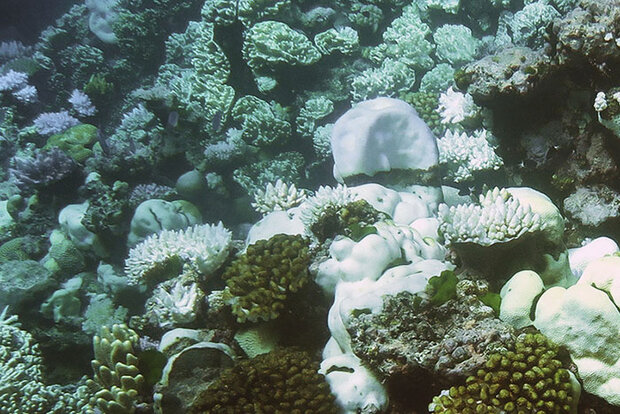Task force emphasizes the need for clearer definitions of marine heatwaves as warming increases

Coral bleaching, shown here on the Great Barrier Reef, is one consequence of higher ocean temperatures. Credit: Mia Hoogenboom/ARC Centre of Excellence for Coral Reef Studies

Coral bleaching, shown here on the Great Barrier Reef, is one consequence of higher ocean temperatures. Credit: Mia Hoogenboom/ARC Centre of Excellence for Coral Reef Studies
The Modeling Analysis Prediction and Projections program (MAPP) of NOAA’s Climate Program Office (CPO) coordinates the Marine Ecosystems Task Force (METF) which brings together scientists to collaborate on MAPP-funded marine ecosystems-related projects. Recently, one of the undertakings of the METF was to properly define marine heatwaves by taking into account the nonstationarity of climate. This effort culminated in a nature commentary that addresses the need for clearer definitions that properly capture the changing nature of our climate and the shift to warmer conditions.
Due to the long-term trends in Sea Surface Temperatures (SSTs), the frequency and intensity of marine heatwaves have increased, and marine heatwaves definitions based on thresholds that do not account for this “shifting” baseline may no longer accurately reflect the nature of extreme warm events driven by internal processes. The distinctiveness of individual Marine Heat Wave (MHW) events has declined as SST warming in many regions is becoming comparable to the magnitude of MHWs. Studies have shown that there is a significant shift in the distribution of sea surface temperatures as a result of climate change which is expected to become even more pronounced as climate continues to warm, with serious implications for marine ecosystems.